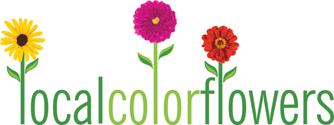Last week Whole Foods’ blog featured a post titled “Share Your Love With Whole Trade Flowers”. The post promotes buying “whole trade” roses from Whole Foods that were sourced from Ecuador, Colombia and Costa Rica. According to Whole Foods, their definition of their “Whole Trade Guarantee” is:![408142_10150565868564962_1596364616_n[1] 408142_10150565868564962_1596364616_n[1]](https://blogger.googleusercontent.com/img/b/R29vZ2xl/AVvXsEgKMpx2NVBMWU_22xWN8n2RDVJxSFbkhriOewo5eMXfjBlOHYuF2Nu2iBpEiythYtj3QlV98aIIWEGLB1JbNqtEThoQ58L9YPm_zqoa70YhrWSOfu97WJf9HOxNZvM8stCF-Hv4v-zBZSA/?imgmax=800)
- Meets our product Quality Standards
- Provides more money to producers
- Ensures better wages and working conditions for workers
- Cares for the environment
- Donates 1% of sales to Whole Planet Foundation®
As you can probably guess, the networks of local growers that we work with were a buzz with this news. East Coast and West Coast growers alike expressed anger, outrage, frustration and disappointment. Whole Foods has a huge amount of buying power and influence so for them to urge people to buy foreign grown flowers on the biggest floral holiday seemed like a slap in the face to the American flower farmers. Growers and supporters alike bombarded the blog post with comments urging Whole Foods to support local farmers.
Many of the comments recognized that improved standards on flower farms in places like Colombia, Ecuador and Costa Rica are needed. Many applauded Whole Foods attempt to improve conditions in foreign farm communities. However, they generally did not believe that this “Whole Trade Guarantee” was a good reason to ignore the environmental impacts of shipping flowers from thousands of miles away. They also were vocal that there are local options available and buying local should be the consumers first choice.
For me, the timing of this debate was interesting because I myself had just been challenged publically about the value in buying local as opposed to supporting low income farm communities in places like Ecuador, Colombia and Costa Rica by buying their flowers.
Is the answer black and white? Clear and easy? Probably not. For Local Color Flowers, we’ve built our company on a commitment to buying local flowers from growers within 100 miles of Baltimore and using them for all aspects of our design work. We made this commitment for lots of reasons including:
- Our desire to run an environmentally sustainable business that does it’s best to have a small environmental footprint
- Our desire to work directly with farmers and farm families that we know (and love) to provide our clients the best product our region has to offer
- Our belief that investing in small businesses in our own community is critical to making our community and region financially stronger and more culturally diverse.
- Our belief that local flowers are superior in both quality and vase life to flowers that have been shipped in from thousands of miles of way
Our region has a strong cut flower industry that provides cut flowers/foliage/potted plants/flowering branches and more year round. We believe it’s good for us, our community and our business to buy local.
Does that mean it’s BAD to buy Whole Trade roses? No- not bad. It’s probably better than lots of the choices out there. I just believe that when possible, buying local is the right first option.
Tell us what you think! Tell Whole Foods what you think!



![408142_10150565868564962_1596364616_n[1] 408142_10150565868564962_1596364616_n[1]](https://blogger.googleusercontent.com/img/b/R29vZ2xl/AVvXsEgKMpx2NVBMWU_22xWN8n2RDVJxSFbkhriOewo5eMXfjBlOHYuF2Nu2iBpEiythYtj3QlV98aIIWEGLB1JbNqtEThoQ58L9YPm_zqoa70YhrWSOfu97WJf9HOxNZvM8stCF-Hv4v-zBZSA/?imgmax=800)
